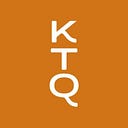(Almost) 20 Questions
It’s been a while but we’re back with (Almost) 20 Questions! An introduction to people in the Kartemquin community — new and old! Meet our newest team member, haydée souffrant.
haydee “hr” souffrant is a Chicago-based Haitian American writer, producer, and facilitator. Many of her artist programs incorporate creative writing, visual and performance art and facilitations on trauma-informed programming and restorative justice practices for artists, educators, youth, and adult audiences of color.
As an arts administrator, souffrant’s professional and artistic work has focused on stage production, program management and facilitation for profit and nonprofit organizations and venues such as Illinois Caucus of Adolescent Health, Theater on the Lake, Berger Park Theater, Links Hall, MPAACT at The Greenhouse Theater, The Chicago Mosaic School, The Black Revolutionary Theatre Workshop (New York), Dramatic Questions Theatre (New York) and artist collectives.
souffrant’s literary work has been featured in numerous online literary publications at Oberlin College, Hair Trigger Issue 41, Medium, Picture This Post, and Sixty Inches from Center.
Programming plays a big role in Kartemquin’s work. What draws you to working in filmmaker programs? Why are you interested in this career?
haydée (hrs): When my parents immigrated to the US from Haiti in the early 80s, both of them shared that they learned to speak English by watching movies like Star Wars and Bruce Lee films. Quite the combo. But I remember the ways I would get lost in the stories my parents would share about Haiti, the political landscapes, heartaches and triumphs they felt comfortable talking about- which often wasn’t for those growing up under the Duvalier regimes most of their lives.
Film has been a first love for me, someone who was a self taught photographer.I’ve always been interested in the ways artists of any field use their creative agency and voice to tell their story, their community stories; how we capture the nuances of what it means to be human, to face the unknown of living in societies that give us more challenges than opportunities of change.
What do you enjoy most about the process of programming — from conception to completion?
For me, art and community go hand in hand, and I love the process of watching people feel the excitement of ideas moving forward, creating something completely new, and bringing people who surprise you together in spaces of creative vulnerability.
What types of programming do you have the most expertise in?
Visual and Performing Arts programs and events, artist festivals, creative arts workshops, and community-based facilitations on social justice and trauma-informed practices.
What are the top three characteristics of a great program?
Curiosity, Flexibility, and Intention. Without those three, you can create a program that hits your goals, but there’s something special about a program that touches the core of people who witness work that have changed a thought, or concept for them, or brought them in touch with people they would never have expected.
What drew you to Kartemquin?
Many things honestly. The biggest draw was that as a longtime arts administrator, it can feel difficult to find a space where your personal values align with your professional ones. Kartemquin showed me that the work we do genuinely cannot have the two separated, because art is always political.
In the documentary industry, there are ongoing conversations about what filmmakers need to find success. What part do you think programming can play in supporting filmmakers, especially those from historically excluded groups?
Programming is essential for creating accessible opportunities to learn what the craft of filmmaking is, along with space and support to actually play creatively. Not everyone has access to graduate programs, or the money to create work on their own.
As someone who’s experienced missing out on my own filmmaker opportunities due to financial constraints, programming done well can often offer artists the resources and real world experience of creating what they love.
What general advice or trends should creatives (filmmakers, artists, etc.) be most mindful of right now?
Great question! I think trends creatives should be mindful of right now is that art has the capacity to challenge the world that desperately wants to remain as is. I would be hard pressed to not say as well, that creatives are tasked with constantly learning how to trust their voice and trust their process, and to lean into it.
Tell me about an exciting program or production you’ve managed.
I have been incredibly fortunate to have stayed within the field as an arts producer and stage manager. But I would have to say one of my favorite productions was coordinating with Links Hall in 2016 to produce a multimedia and performing arts festival alongside my sister and chosen artist family.
What are you most excited about working at Kartemquin?
Working with so many amazing staff who think creatively, and with filmmakers who are making breathtaking work. If you aren’t inspired regularly like this, I just don’t know what to tell you!
Favorite Documentary?
This question is a set up! Hahaha. I would probably have to say Summer of Soul by Questlove. I love music festivals, and as a former Brooklynite/New Yorker, it was amazing to see how Questlove brought the history of the city and legacy of black music together with archival footage.
Favorite Kartemquin Film or a Kartemquin Film you haven’t watched yet, but are excited to add to your queue?
I am beyond excited to watch Unapologetic and Finding Yingying. It is rare to see women of color at the helm of documentary work, and as a mental health advocate and true crime lover, am looking forward to seeing them.
When you’re not planning and managing programs, what do you like to do?
I am an artist at heart, and often try to read or write, or paint which has been a recent calling to me. I also love a strategic nap and a fantastic botanical garden or nature walk.

